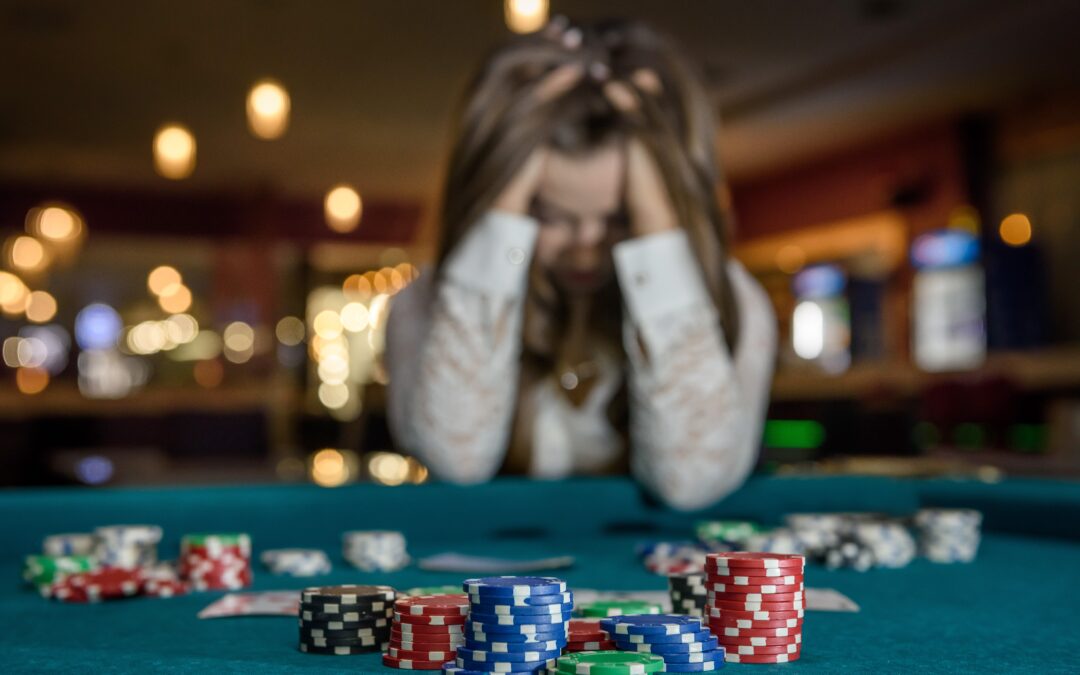In the United States, Gambling Awareness Month is held every March, and is recognized by the National Council on Problem Gambling (NCPG) to address the addiction of compulsive gambling. People who are affected by gambling disorder, keep the cards on the table despite the negative effects of their addiction. Gambling addiction usually has the following symptoms and signs:
- A mental take over: Those experiencing gambling addiction are in constant gambling mode, even when they are not actually gambling. This is because they are preoccupied with the thought of gambling and always chasing the next “win” – which serves as a short term escape from the problems they face in their life and negative feelings associated with them.
- High stakes: For those suffering from compulsive gambling, just like those addicted to drugs and alcohol, they build a tolerance level and can often feel the need to continue to up the ante with more and more money (hoping for the high of a big win), which often leads to total financial devastation. Continued gambling addiction issues ultimately can lead to mood disorders like depression and anxiety or even send some into substance abuse.
- Know when to fold ’em: For those that try to put a stop to their gambling habits, they are often left feeling like a loser – since they battle the feelings of guilt on top of the fact that they are wrecked financially. Gambling addicts may experience mood issues like irritability, which can lead to increased issues with relationships, finances, and legal problems arising.
As people fall deeper into a gambling addiction, many lose everything as they spiral out of control. For those that do finally confront their addiction and attempt to dig out of their addictive cycle, treatment options include support groups, therapy, counseling, and even medication.
Some initial steps toward treatment include:
- Be aware. Being aware of the gambling addiction. Avoidance is often common with any addiction but becoming self-aware of the issues at hand is the most important step to getting help. This also includes taking a hard look at how the addiction is affecting loved ones.
- Intervention and professional help. Professional help is out there for those seeking it. Talking to support groups and finding a way out can help someone struggling become recovered for the long game.
- Stay in safe spaces. Just like any addiction, get yourself or your loved one away from situations that trigger their gambling addiction. This can include changing social groups that pressure gambling, using your time to create healthy habits, and blocking places that encourage gambling, including gambling online and sports betting apps. This is where having a strong support group can really help carry you through and keep you accountable.
- Self-care is selfless. A shift in focus off of gambling and on to true self-care can make all the difference when it comes to gambling addiction. Engage in physical activity, get sleep, and establish new habits that help keep your mind off of your addiction.
Our team at Scottsdale Recovery and Detox Center® understands addiction and has created a vast array of support services for those struggling with co-occurring disorders. We are committed to serving our community as well as those nationwide and provide a safe space for recovery. Our team is a phone call away if you or a loved one are seeking support! Learn more by visiting scottsdalerecovery.com or call 1-888-NODRUGS.

